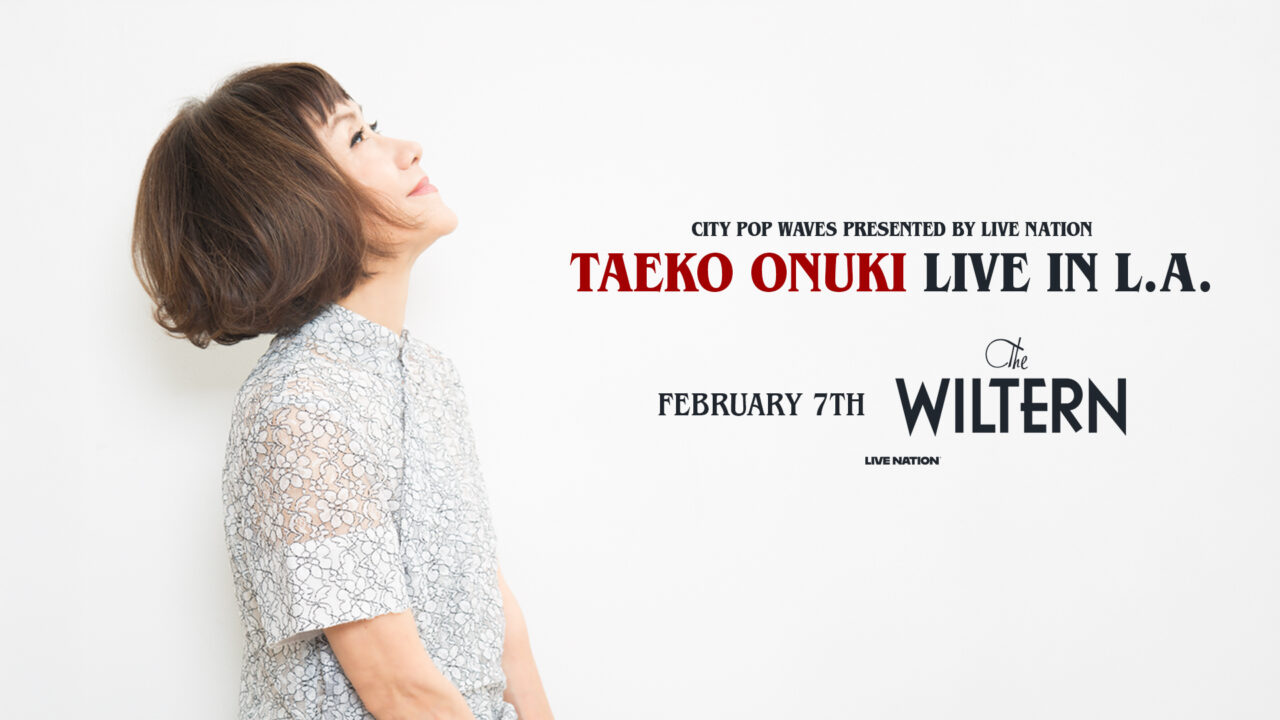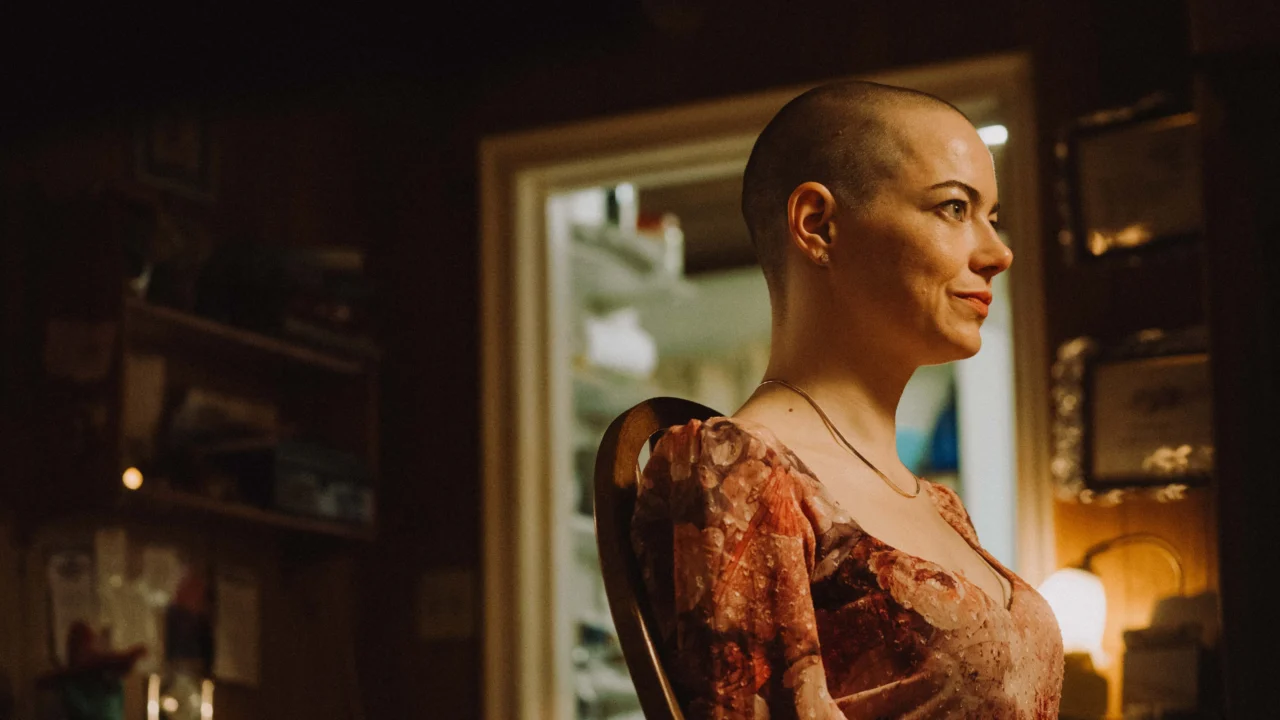Haruko Oishi’s music is a celebration of the everyday, where moments both big and small spark a harmony of light and emotion. Without relying on grand narratives, her songs delve into the unpredictable nature of life, embracing both joy and sorrow through soul-stirring arrangements and a voice that resonates with deep authenticity. Her debut album, MyakKō (脈光), released in 2022, garnered widespread attention, winning a special award at ASIAN KUNG-FU GENERATION’s APPLE VINEGAR -Music Award-, and her recent tracks signal an exciting new direction. Yet, with limited live performances and media appearances, many may still be unfamiliar with the true depth of her artistry. This interview offers an intimate exploration of Oishi’s unique persona and creative journey, shedding light on the rare and powerful presence behind the music.
INDEX
Soul Music and Hymns: Foundations of Her Early Musical Journey
According to your profile, you were born in Osaka and raised in Kanagawa, in a family that loved music.
Oishi: When I was young, I didn’t really pay attention to it, but there was often soul music playing around the house. Artists like Donny Hathaway and Minnie Riperton. When I listened to them later on, I’d recognize the songs and think, “I know this one.” My family loved music too. We’d often play instruments and sing together at home, or go to karaoke. I used to play the game PaRappa the Rapper, and I still listen to its soundtrack sometimes.
Your brother, RYUKI, is a rapper and participated in the track “Te no Todoku” on your album MyakKō. Did you both share similar music tastes?
Oishi: There’s a bit of an age gap, so we didn’t really share much directly. I only realized my brother liked hip-hop when I entered university, and even after I started making music, we just kind of acknowledged that we were both doing something, but that was about it [laughs].

Singer-songwriter born in Osaka and raised in Kanagawa, Haruko Oishi began her music career after university. Her journey gained momentum with a memorable performance at the Ringo Music Festival in 2018, followed by the release of her single “Okoranaide ne” in 2019, and the EP “Zeibi” later that year. In 2022, her long-awaited debut album MyakKō (脈光) dropped on April 1, quickly making waves across social media and earning widespread acclaim among music lovers. The album’s success was recognized with a Special Award at the APPLE VINEGAR – Music Award, solidifying her place as a rising star in the music scene.
You attended a school with a continuous curriculum, where you sang hymns every morning. That must have been a significant part of your connection to singing, right?
Oishi: Yes, it definitely was. We had an annual choir competition, and everyone got really into it. I loved being in the choir, and I enjoyed singing hymns too. Every morning, all the students would gather, and even though I was a bit sleepy, singing has been something I’ve enjoyed since then.
Looking back, what did those morning worship sessions mean to you at that time?
Oishi: To be honest, I should have focused more on the sermon, but it was also a time for me to reflect and think. Even now, I enjoy taking walks and letting my mind wander. Having that dedicated time in the morning to think and reflect felt like a rare and valuable moment back then. While listening to the sermon, I would let my thoughts wander and imagine things.
INDEX
Influence of GRAPEVINE and Radio
You mentioned that you listened to GRAPEVINE a lot during your middle school years.
Oishi: I have a tendency to focus intensely on something once I get hooked, whether it’s comedy or music. After discovering GRAPEVINE, I listened to their music over and over again until the CDs were worn out. When I was in elementary school, I used to listen to anime songs, drama theme songs, and popular bands like ORANGE RANGE, but I think I was drawn to GRAPEVINE because they had a more mature vibe.
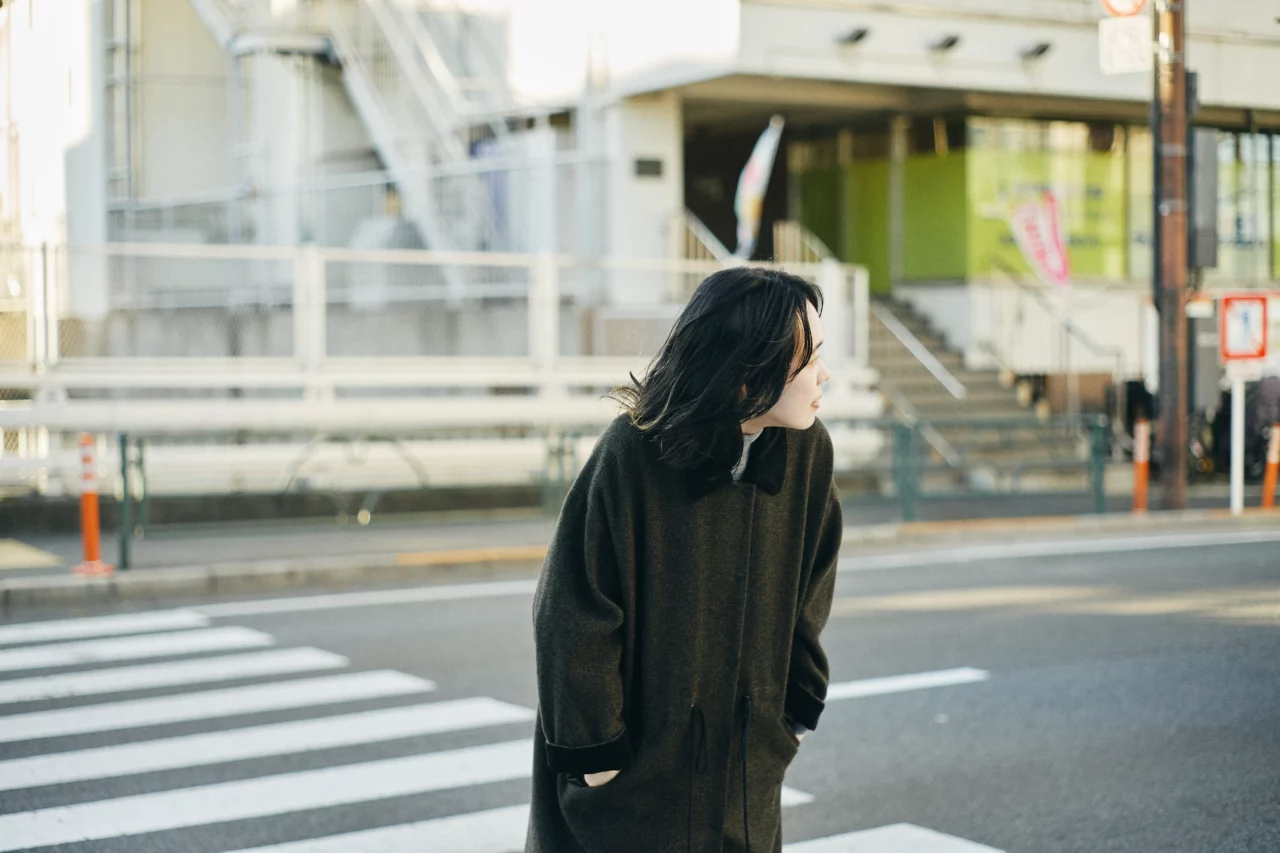
Was there a specific GRAPEVINE song that first caught your attention?
Oishi:I think it was singles like “Slow” and “Hikari ni Tsuite.” The lyrics had a kind of ambiguity that I couldn’t fully understand at the time, which made them even more intriguing. It was like, “I don’t quite get it, but maybe that’s okay.” I used to get really excited with my friends who were also into GRAPEVINE, saying, “It’s just so amazing!”
The indirectness in their lyrics seems to align with your own songwriting approach.
Oishi:I guess I’m a little shy about writing too directly, so I may have a tendency to avoid being too clear-cut. But I think GRAPEVINE influenced me in understanding that it’s fine if things aren’t always easy to grasp. Their lyrics are often seen as literary, but there are moments that really strike you, like “This scene feels familiar.” I always aim for my own lyrics to convey a particular mood or emotional shift. While using the full potential of sound, I want my songs to evoke something personal for each listener. I hope to create songs that make people feel their own unique response, rather than everyone having the same image in their minds.
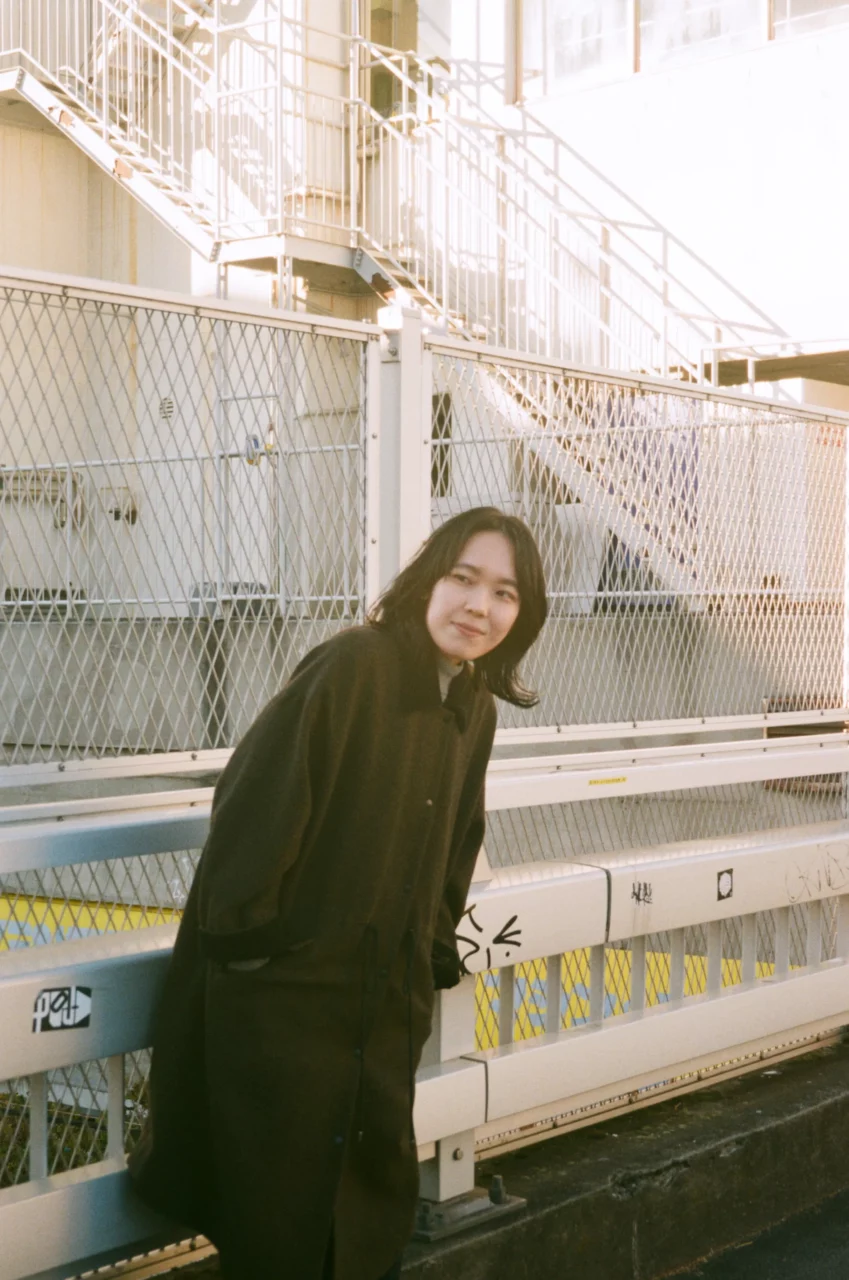
Did you always have an interest in poetry and words?
Oishi: It’s a bit embarrassing, but I didn’t really read books much during my school years. I had trouble focusing, so I couldn’t really absorb anything. Even when I thought I was reading, I would just follow the words, and before I knew it, I’d be thinking about something else, like “Did I record that show?” Reading never really clicked for me, so literature felt like a distant thing.
You’ve always liked comedy, especially radio. Are there any radio shows that you’ve been listening to for a long time and that have influenced your personality or values?
Oishi: I started listening to the radio when I entered university and would listen on my way to school. One of the shows I listened to every week was Banana Man’s Banana Moon GOLD. I loved the segment called “Himpeki,” where they did parody songs. Unfortunately, it was recently discontinued after over 10 years, and I felt sad about that. I also listened to Diane’s Yona Yona… until it ended. I think I like the more trivial, carefree shows. I like the idea of people sending ridiculously silly emails and postcards, taking them seriously. I even sent an email myself. It’s fun to think of something foolish, almost like you’re doing work, like writing a thesis, but you’re writing things you’d never show anyone. I think I enjoy that time. It might be similar to the time I spend writing lyrics. I’m not sure if it shaped my personality, but if someone asks me what I like, I’d say radio. I probably spend more time listening to radio than music.
INDEX
Her Musical Journey Begins at Waseda University
You joined a music club at Waseda University and started singing seriously there, right?
Oishi: Yes, I joined a club that covered black music. Waseda has a lot of music clubs, so I initially explored various genres. But when I saw the soul and funk performances at the welcome live, I was really impressed. When I went to jam sessions, everyone would play without sheet music, changing keys on the spot, and it felt so fresh.
By the way, when did you start playing instruments, and how proficient were you?
Oishi: I started learning classical piano when I was in elementary school. However, I stopped when I entered junior high because I couldn’t keep up with practice. In middle and high school, whenever I had free time at home, I would play and sing along to GRAPEVINE. I also started experimenting with an acoustic guitar that was at home, learning the chords. Even after joining the club, I was just singing, so I didn’t really dive into playing instruments. But I think it was lucky that I had a background with piano and guitar, as it helped me start composing later on.
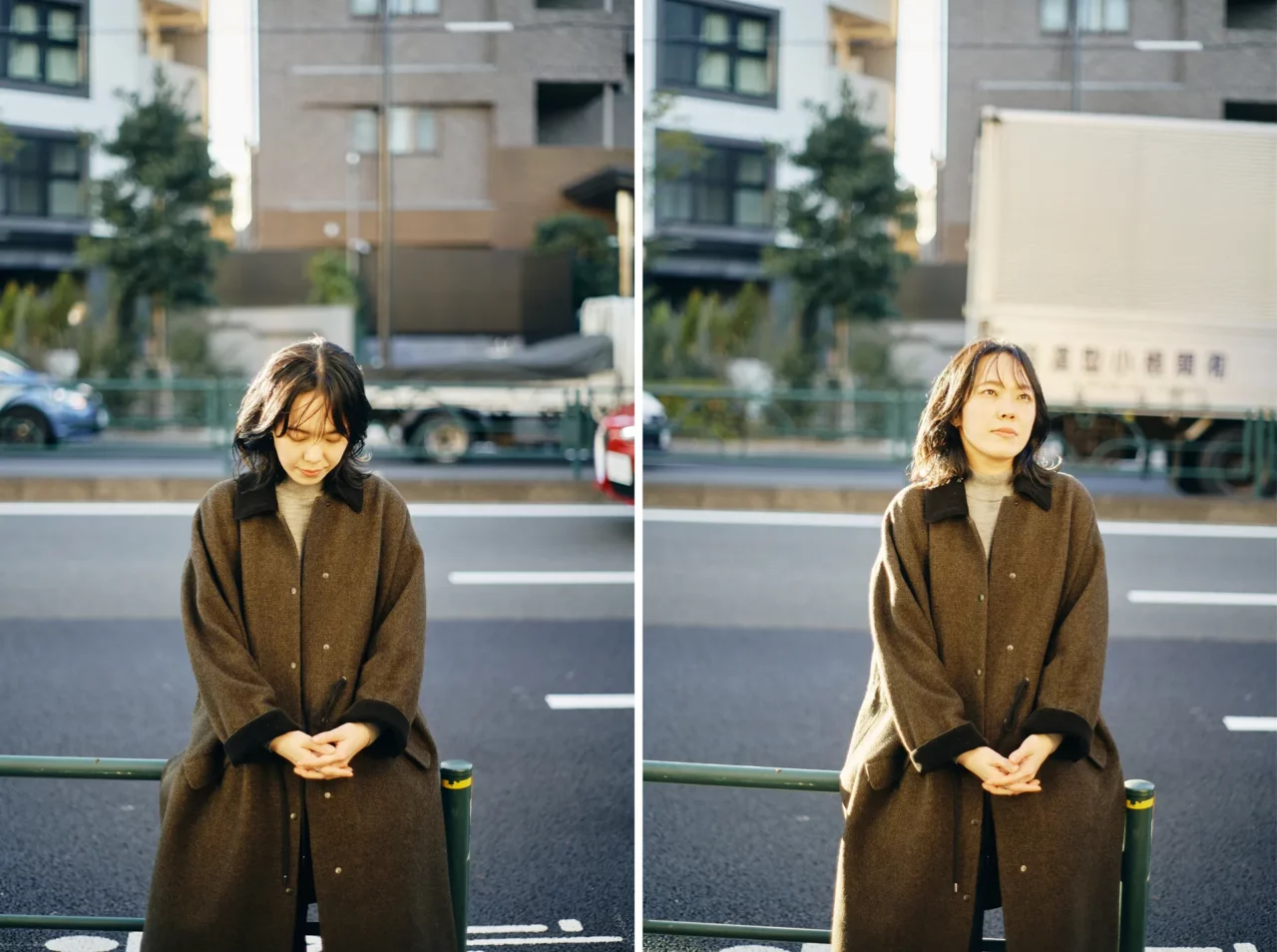
During university, you mainly did covers and sang songs by artists like Corinne Bailey Rae and Minnie Riperton. I’ve also heard you like Cleo Sol. It seems like you lean towards a smoother style, with a cool vibe but also a subtle warmth, rather than powerfully belting out songs. Is that the kind of feeling you’re going for?
Oishi: There were people in the club with powerful voices who were really good singers, and I realized that it was okay if I couldn’t do that. There are many songs you can sing without needing to project a loud or high voice. I think it was really valuable for me to learn what kind of songs I could sing and wanted to sing during my time in the club.
After graduating from university, you started working on original music. How did you feel about your career path at that time?
Oishi: After retiring from the club and graduating, I never thought about “quitting music.” I felt that if I was going to continue, I wanted to sing my own songs and that it was the right thing to do. While working at a dumpling shop, I began seriously creating original music and doing live performances.


















